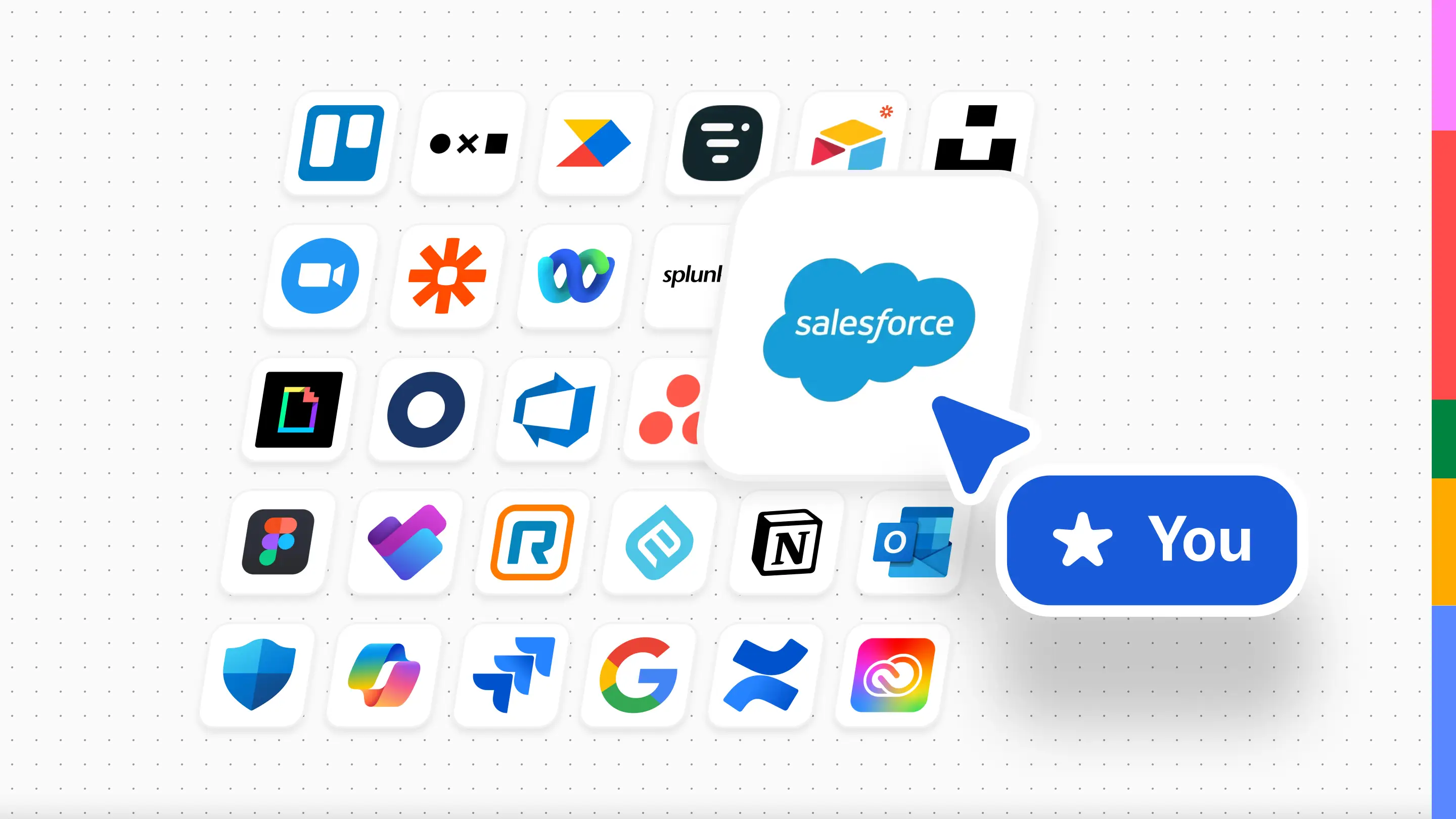You may have heard of OKRs and KPIs before, but do you know what those terms actually mean? And could you use either or both of them to help your team strategize for a successful development cycle?
In this post, we'll cover:
- What do OKR and KPI stand for, and how are they used?
- What are the benefits of using OKRs over KPIs, or vice versa?
- Should you use both OKRs and KPIs, or just one of them?
- What's the best way to set up and track OKRs or KPIs in your organization?
Whether you're engaging in the strategic planning process for the first time or you're a seasoned veteran trying to decide which approach may be a better fit for a new challenge or upcoming project, read on to learn how OKRs and KPIs can be used independently or in tandem to achieve strong outcomes for your team.
Defining OKRs and KPIs
OKRs
OKR stands for “objectives and key results.” You can think of them as the goals a team sets and the milestones it will track along the way as it progresses toward them.
KPIs
KPI stands for “key performance indicators.” They are the metrics you measure to gague the health of your business and to track progress toward your objectives.
What’s the difference?
Both OKRs and KPIs can help ensure that you are on track to meet your business goals — they’re both essential parts of a strategic, outcome-focused product roadmap and are crucial to realizing a meaningful product vision. However, it is important to note that they are not the same thing.
OKRs look broadly at the overall scope of a project to identify what you want to achieve by the time you complete it. Try our OKR planning template to see how you might set and monitor strong ones for your team.
KPIs, on the other hand, are focused on specific measures of performance that can be quantified and analyzed at any moment (KPIs for product teams may include new users and daily active users, for instance).
By looking at OKRs and KPIs together, you can get a comprehensive view of both your long-term progress and your short-term effectiveness.
OKRs vs. KPIs: Benefits of each and use cases for goal setting
OKRs and KPIs both help teams measure progress, and they’re both essential to driving outcomes for your team: According to PwC, 37% of business projects fail because of a lack of clear goals. But each of these metrics is most useful in a different kind of situation.
OKRs are best for setting ambitious, strategic goals that push a team toward new achievements, whereas KPIs are better for tracking the ongoing health and performance of existing processes. An OKR might focus on launching a product into a new market, with success measured by milestones like customer adoption or market share growth—stretch targets that inspire innovation and cross-functional collaboration. A KPI, on the other hand, might track the number of support tickets resolved each week or the time it takes to respond to a customer inquiry, offering a clear view into operational efficiency.
Where OKRs encourage teams to push themselves to new levels of success or reach important milestones, KPIs ensure they maintain essential performance levels. Imagine a marketing team: an OKR could aim to “increase brand awareness among a new target audience,” with key results tied to campaign reach, engagement rates, and new audience penetration. The same team’s KPIs might monitor ongoing metrics like website traffic or conversion rates — numbers that show whether their everyday marketing machine is running smoothly. In this way, OKRs set the vision, while KPIs track the execution.
Using both together helps balance ambition with stability. OKRs drive transformational change, opening doors to new opportunities and ways of working, whereas KPIs safeguard quality and efficiency, reducing risk as teams explore new territory. For example, an R&D group pursuing an OKR to “reduce product development cycle time by 30%” might track KPIs like defect rates or release frequency to keep innovation from compromising standards. One keeps everyone moving toward big-picture impact; the other ensures the fundamentals stay strong along the way.
When teams rely solely on KPIs, they risk focusing only on incremental improvements and missing chances for bold leaps. If they only adopt OKRs, they may overlook critical indicators of day-to-day performance. By combining both, organizations connect vision to execution: OKRs provide the “why” and “where to,” while KPIs provide the “how well” and “how efficiently.” Together, they create a complete picture of success—motivating teams to aim high while staying grounded in measurable results.
OKRs or KPIs: What's the best approach for your organization?
When it comes to setting goals and measuring success, organizations have a few different options to choose from. So, how do you decide which one is right for your organization? Here are a few factors to consider:
Consider what you’re measuring
First, think about what you want to measure. KPIs are typically used to track specific measures of efficiency and organizational health, whereas OKRs are designed to set goals and drive organizational change.
Understand how often you’ll be checking progress
Second, consider how often you need to measure progress. KPIs are typically measured more frequently, say on a monthly or quarterly basis. OKRs, on the other hand, are tracked over a longer period of time. This can mean annually, or it can just be over the full life of a project.
Consider what data you have at your disposal
The type and quality of data you have at hand can often determine whether KPIs or OKRs are the better fit. KPIs work best when you can access consistent, reliable data that reflects ongoing performance—such as weekly sales figures, response times, or defect rates—since these metrics depend on stable tracking over time. OKRs, on the other hand, can be more flexible in their data requirements, often drawing from new or evolving sources that reflect progress toward a larger objective, like pilot project results, market feedback, or prototype testing milestones.
No matter which framework you choose, the important thing is that you're clear about what you’re measuring and how you intend to measure it. If you take the time to consider all of the factors involved, you'll be sure to choose the right option for your organization.
OKRs and KPIs: Use them together or choose one?
Deciding whether to use OKRs and KPIs together or choose one depends on the nature of your work, your goals, and the maturity of your processes.
Using both gives teams a balanced framework—OKRs to stretch toward bold, strategic outcomes, and KPIs to monitor ongoing performance and maintain quality. This combination works best when an organization is pursuing ambitious change but still has critical operational targets to hit. For example, a product team might establish an OKR to launch a new feature to 50% of its user base within the next quarter and track KPIs like defect rates and user satisfaction to ensure quality doesn’t slip during the push. The main downside to this dual approach is complexity: tracking two sets of metrics can create extra work and divert attention, and teams may struggle to keep focus if targets change or multiply.
Choosing only OKRs can simplify goal setting when the aim is transformation, innovation, or breaking into new territory. A startup entering its first international market might set OKRs related to establishing local partnerships, gaining initial customer traction, and adapting its offering to local needs. Because OKRs encourage stretch goals and adaptability, they suit environments where outcomes are largely new and untested. The trade-off is that without KPIs, teams may overlook essential factors that protect long-term stability — such as cash flow, customer retention, or delivery timelines — which can put the organization at risk if not monitored elsewhere.
On the flip side, relying solely on KPIs works well for teams focused on operational excellence with established, repeatable processes. A customer support center might depend on KPIs like resolution time, satisfaction scores, and ticket backlog to ensure service levels remain high. This approach makes it easy to spot trends and act quickly to correct performance issues. The downside is that KPIs alone rarely inspire major shifts or breakthroughs — they show how well you’re maintaining the current state, but not where you could leap forward.
In practice, many organizations benefit most from using OKRs and KPIs together, but in a focused way. Align a small set of OKRs to strategic priorities for the upcoming period, and pair them with a handful of KPIs that safeguard the essentials. This balance helps teams aim high without losing sight of the core metrics that keep the business healthy, ensuring progress is both ambitious and sustainable.
What's the best way to set up and track OKRs or KPIs in your organization?
There are a few different ways to set up and track OKRs and KPIs in your organization. Whichever method you choose, it's important to make sure that everyone in the organization is aware of the OKRs/KPIs and knows how to update them.
If you’re going to prioritize OKRs, Mural offers a free (and editable) template to help get you started, which includes an overarching OKR framework divided into easy-to-fill pre-built sections.

For KPIs, Mural offers a product KPIs guide that walks you through each step of selecting and measuring these indicators, including a free business model canvas template linked below.

Periodically, you should review your OKRs and KPIs with your team to discuss your progress and identify any areas that need improvement. This will help keep everyone on track and ensure that your chosen objectives are still relevant. By tracking OKRs and KPIs regularly, you can stay on top of your organization's performance and ensure everyone is working toward common goals.
Related: How to Create Better Team Alignment
Ready to decide? Start your strategic goal planning
What's most important to your organization? What will help you achieve your goals most effectively? If you're not sure, that's okay! We can help you figure it out. Mural is the perfect platform for project planning, creating a winning strategy, and unlocking innovation, so you can make the best decisions for your team.
Map out your project KPIs and OKRs for instant team alignment. See how with a Mural demo.













